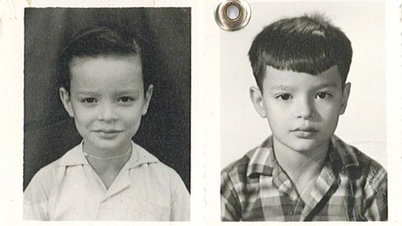
Music is a powerful source of emotion for most of us, but some people feel nothing when listening to music, whether it is upbeat or calm - Photo: AI
About a decade ago, scientists first discovered a small group of people who were completely "insensitive" to music despite having completely normal hearing and being able to feel other forms of pleasure in life.
This rare phenomenon, known as “specific amusical alexia,” occurs when the areas of the brain that process sound don’t connect effectively with the areas responsible for creating feelings of reward.
The brain hears music but does not trigger feelings of enjoyment
In a new paper published in the journal Trends in Cognitive Sciences , a team from the University of Barcelona details the neural mechanisms behind the condition. They say that a disruption in communication between the auditory network and the reward circuitry is key to explaining why some people fail to feel pleasure from melodies, despite their ability to hear and process music normally.
The work also opens up new avenues for understanding individual differences in how people experience pleasure and rewards in general.
"The difference is not in the music, but in the connection between the auditory processing area and the reward system. The brain hears it, but it doesn't trigger the feeling of pleasure," says scientist Josep Marco-Pallarés.
To identify the condition where music fails to reach the brain's "pleasure centers," the team developed the Barcelona Music Reward Questionnaire (BMRQ), which assesses an individual's response to five domains: emotional arousal, mood regulation, social interaction, movement/dancing, and joy in discovering new music.
In all five of these criteria, people with musical "apathy" scored very low.
The fMRI results showed a consistent pattern: the brain still recognized and processed the melody, but the reward circuitry responded very weakly when listening to music, while with other rewards, such as winning a prize, the reward circuitry functioned completely normally.
"It's not that the pleasure system is broken. It's how it connects to the auditory cortex," explains researcher Ernest Mas-Herrero. "Each type of pleasure emotion requires its own pathway, and music is one of them."
This phenomenon suggests that the reward system is not an “all or nothing” mechanism as previously thought. Instead, it depends on precise coordination between individual brain regions.
Genetics or environment?
The exact cause is still unknown, but a study in twins suggests genetics may account for up to 54% of the ability to feel pleasure from music.
Environment, musical exposure, and brain development may also contribute.
The team is working with geneticists to track down the genes involved and see if the condition can change over time, or even be reversed.
The discovery of “specific musical apathy” not only explains why some people are calm when faced with melodies that bring others to tears, but also opens up new research directions on individual differences in the perception of mania.
If music can have its own form of "dullness," scientists suggest we might also experience loss of interest in food, exercise, or social interactions, all involving distinct neural pathways.
Understanding this mechanism could help explain many human disorders, from loss of pleasure and depression to addiction and eating disorders, all of which involve the way the brain processes emotions.
Source: https://tuoitre.vn/vi-sao-co-nguoi-nghe-nhac-ma-khong-thay-gi-khoa-hoc-he-lo-nguyen-nhan-2025112400470817.htm




![[Photo] Prime Minister Pham Minh Chinh receives Governor of Gunma Prefecture (Japan) and Special Advisor to the Japan-Vietnam Friendship Parliamentary Alliance](/_next/image?url=https%3A%2F%2Fvphoto.vietnam.vn%2Fthumb%2F1200x675%2Fvietnam%2Fresource%2FIMAGE%2F2025%2F11%2F25%2F1764066321008_dsc-1312-jpg.webp&w=3840&q=75)

![[Photo] Close-up of Ba Ha River Hydropower Plant operating to regulate water to downstream](/_next/image?url=https%3A%2F%2Fvphoto.vietnam.vn%2Fthumb%2F1200x675%2Fvietnam%2Fresource%2FIMAGE%2F2025%2F11%2F25%2F1764059721084_image-6486-jpg.webp&w=3840&q=75)




















































![[Answer] Should I install an elevator for an old renovated house?](https://vphoto.vietnam.vn/thumb/402x226/vietnam/resource/IMAGE/2025/11/25/1764039191595_co-nen-lap-thang-may-cho-nha-cai-tao-cu-khong-04.jpeg)















































Comment (0)